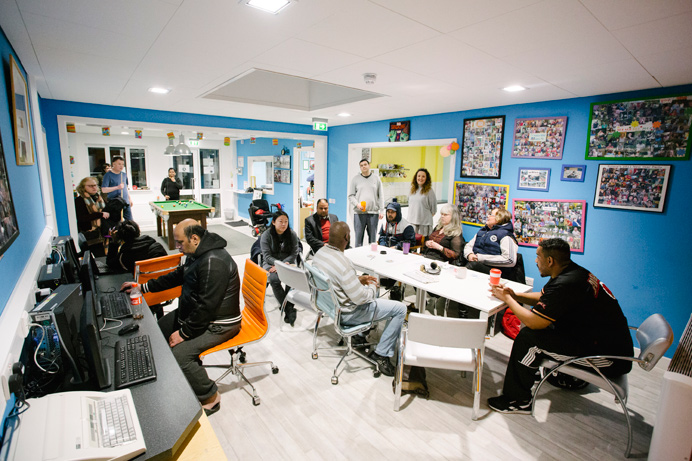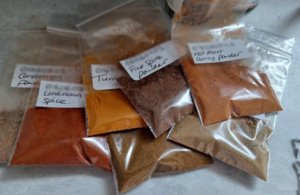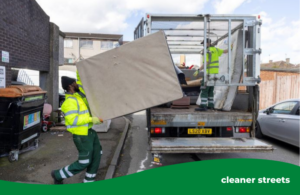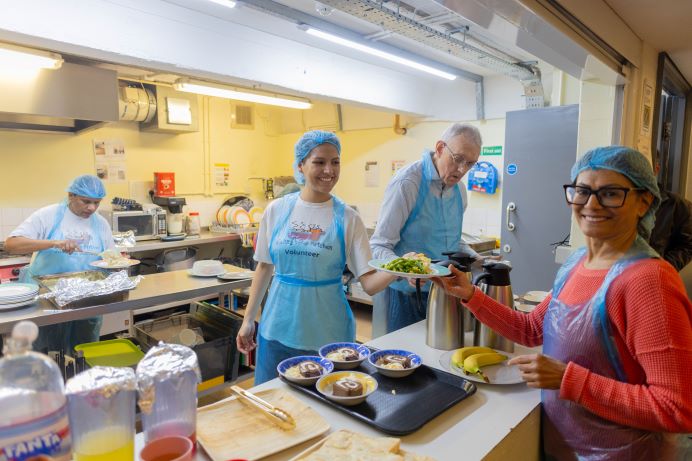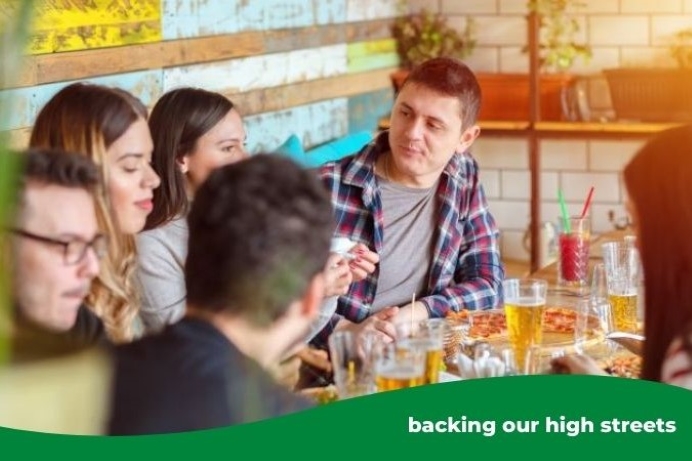“Solace is not just about having a laugh and a cup of tea; it is much more than that,” insisted a user of the recently reopened mental health resource centre. It plays an integral role in helping people to cope with mental health crises or combat loneliness and depression.
For 23 years, The Solace Centre in West Ealing has been a place where people with mental illness can meet in a relaxed environment, build confidence and make new friends. It provides lots of activities, from crafts to a book club and from music to pool competitions; and on the evening we visited there was a baking class about to take place – run by two service users.
Aside from the social aspect, the centre’s staff helps its 87 members and many other visitors to resolve day-to-day mental health problems, ranging from anything from advice on budgeting to dealing with thoughts of suicide. It is an ‘out-of-hours’ service that runs 365 days a year, opening weekday evenings and all afternoon at weekends for members.
The centre, in Bowmans Close, recently officially reopened on World Mental Health Day in new premises, the lay-out of which was partially shaped by service users’ views. The centre’s old home had been in need of significant repair and, after an uncertain couple of years when Solace’s future was under threat, the opening of the new base was well received by a sea of 140 smiling faces.
‘They know they are not alone’
Senior recovery worker Catherine Bingham said: “It’s very much about respect here. We have people of all ages and backgrounds and situations with various mental health diagnoses – schizophrenia, bi-polar, depression. A great majority of our service users come from the community where loneliness and day-to-day life can become unbearable. Others are referred by their GPs, the hospital or via supported housing.
“Solace is a welcoming and safe environment so our Ealing Mental Health service users know they are not alone, trapped behind four walls. Everyone can be connected. That is so important.
“Some members have been coming for many years, others may have been going through a personal crisis and coming here helps to get them back on the road to returning to work; and some others may have had their care returned to their GPs after a spell at hospital and so suddenly have less support – and Solace provides somewhere that fills that gap, especially when combating a sense of loneliness and isolation.”
‘Loneliness is a killer’

Natasha Wing has been going to Solace for 15 years. She has been diagnosed with borderline personality disorder – a condition that she believes was first triggered by personal traumas as a child.
“I used to seclude myself quite badly,” she said. “And I first came here to get support in the hope of seeing some improvement to my mental health. It did help, thankfully, and it has become my second home and very much become my safety net. It has done so much for me in dealing with day-to-day living and the stresses and strains of life.
“We help each other. Peer support is so important. The only people who truly know about mental health problems are the people who have suffered them. No text book can tell you how someone feels. Sometimes just talking can make such a difference and it is so much more relaxing talking to peers – it is much harder with medical professionals and, personally speaking, I find barriers come up when I talk to a professional. A minor problem can escalate into a bigger problem without support and having that understanding at Solace can make so much difference. Medication is not always the answer.
“The staff here are amazing and have an open door policy. They go way beyond the job description and want the best for the clients. They also get everyone involved in the activities which helps build confidence. For example, I did the cake for the launch event and it was nice to have that input.
“There should be more places like Solace – it gives you social contact you might not otherwise have, especially if someone has no-one else. Loneliness is a killer.”
Natasha now runs a weekly baking class at the centre to put her chef training into practice. She also sits on interview panels and attends meetings for Solace and the West London Mental Health Trust, as well as doing visits to hospital wards for Mind in Ealing.
‘I can be myself and accepted for who I am’
Another member of Solace who has been going there for 15 years is Dympna Bolger, who lives with bi-polar.

“I went for a job at Ealing Women’s Centre in 2002 and found out about Solace then. I hadn’t heard of it before. I went along and instantly liked it and decided to keep going.
“It is like a peer group – a community of mental health sufferers who are all in the same boat. You don’t have to explain yourself or your situation. I can be myself and I am accepted for who I am. It takes the pressure off.
“The staff know me really well now and can pick up on signs if I am getting manic or a little too high. If I feel wobbly, I can use them as a touchstone and then do something about it before it goes too far. It is more and more difficult to get an appointment with a medical professional, so this kind of support is invaluable.
“A lot of us don’t work and do not have that kind of daily routine that brings you together with other people. And if you don’t have a routine or a reason to be somewhere, it is not good for your mental health. Solace brings us that daily human contact and it adds a social feel to your day. What is more, it is with people who are genuinely interested in how you are.
“The new building here is enormously better. The old one was a bit worse for wear and would have needed a huge overhaul. This one is also more open plan and the users got to participate in the design of the layout.
“Everyone worked so hard to save Solace and I would like to thank the people of Ealing for supporting us.
“It is not just good for us, but also for our families. My family feel much better, especially if I’m unwell, because they know I am able to go to a safe and clean environment.
“Nowhere else provides this. You would hope there would be loads of good places to go if your loved one had mental health problems but there isn’t.
“Solace is not just about having a laugh and a cup of tea; it is much more than that.”
‘This is the first place I come to if I’m having a bad time’

Tyron Barnett is another long-time user of Solace. “Originally, my friend brought me here about 16 years ago,” he said. “And I made the decision there and then to come back because I liked it so much.
“The people are friendly, the staff are friendly, and this is a family to me – a big family of people from different places. I can come here whenever I want and just chill and talk with my friends, or I can find a quiet spot here, too, if I prefer to gather my thoughts.
“This is the first place I come to if I’m having a bad time and I’m on my own. Everyone understands and can relate to you. We share each others’ problems and look out for each other. And you can knock on the door and talk to staff any time.
“When people come in for the first time I am one of the first to speak to them. I just tell them to come in, chill out and be yourself. That is all you need to do here, and it means a lot.”
The big reopening
Councillor Hitesh Tailor, Ealing Council’s cabinet member for health and adults’ services, cut the ribbon to officially reopen the centre and adjoining Marron House in October to coincide with World Mental Health Day.

Since April 2016, the council has leased the Solace Centre (out-of-hours social inclusion centre) and Marron House (24-hour residential housing) to Equinoxcare, part of the Social Interest Group charity.
Accompanying Councillor Tailor to reopen the centre was mental health champion Councillor Abdullah Gulaid, who celebrated with around 140 guests including service users, and their carers, family and friends.
Councillor Tailor said: “It’s effectively taken three years to come to this point and to also reopen on World Mental Health Day was symbolic. The new purpose-built building in the heart of Ealing will give current and future users much needed support.”
